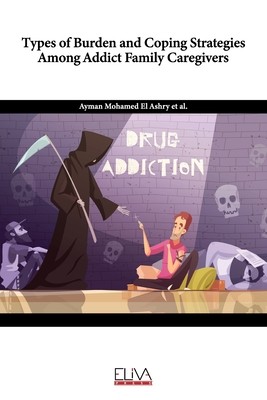
- We will send in 10–14 business days.
- Author: Mervat Mostafa El Gueneidy
- Publisher: Eliva Press
- ISBN-10: 163648171X
- ISBN-13: 9781636481715
- Format: 15.2 x 22.9 x 0.7 cm, softcover
- Language: English
- SAVE -10% with code: EXTRA
Types of Burden and Coping Strategies Among Addict Family Caregivers (e-book) (used book) | bookbook.eu
Reviews
Description
Substance dependent family members experience high degree of burden. Yet, they try to cope positively with such burden particularly using both engaged and tolerant in active coping strategies. Burden particularly financial burden and disruption of routine family activity was felt more intensity if the substance dependent was a female mainly due to stigma and shame. Burden and used coping strategies also affected by substance dependent age, unemployment, and level of education. It is found that engaged and tolerant in active coping are the most using coping strategies by the studied family members of patients with substance dependent. In relation to family members characteristics and degree of experienced burden, degree of burden increased with unemployment and low financial income and decreased with highly educated family members. For coping strategies and family members characteristics male used engaged coping more, while female family members using tolerant inactive coping more than other type. Besides, family members who have enough financial income used engaged coping more than other types of coping. As well as family members who are, parents or siblings are using engaged coping with their substance dependent relative a level.
EXTRA 10 % discount with code: EXTRA
The promotion ends in 20d.15:08:12
The discount code is valid when purchasing from 10 €. Discounts do not stack.
- Author: Mervat Mostafa El Gueneidy
- Publisher: Eliva Press
- ISBN-10: 163648171X
- ISBN-13: 9781636481715
- Format: 15.2 x 22.9 x 0.7 cm, softcover
- Language: English English
Substance dependent family members experience high degree of burden. Yet, they try to cope positively with such burden particularly using both engaged and tolerant in active coping strategies. Burden particularly financial burden and disruption of routine family activity was felt more intensity if the substance dependent was a female mainly due to stigma and shame. Burden and used coping strategies also affected by substance dependent age, unemployment, and level of education. It is found that engaged and tolerant in active coping are the most using coping strategies by the studied family members of patients with substance dependent. In relation to family members characteristics and degree of experienced burden, degree of burden increased with unemployment and low financial income and decreased with highly educated family members. For coping strategies and family members characteristics male used engaged coping more, while female family members using tolerant inactive coping more than other type. Besides, family members who have enough financial income used engaged coping more than other types of coping. As well as family members who are, parents or siblings are using engaged coping with their substance dependent relative a level.


Reviews